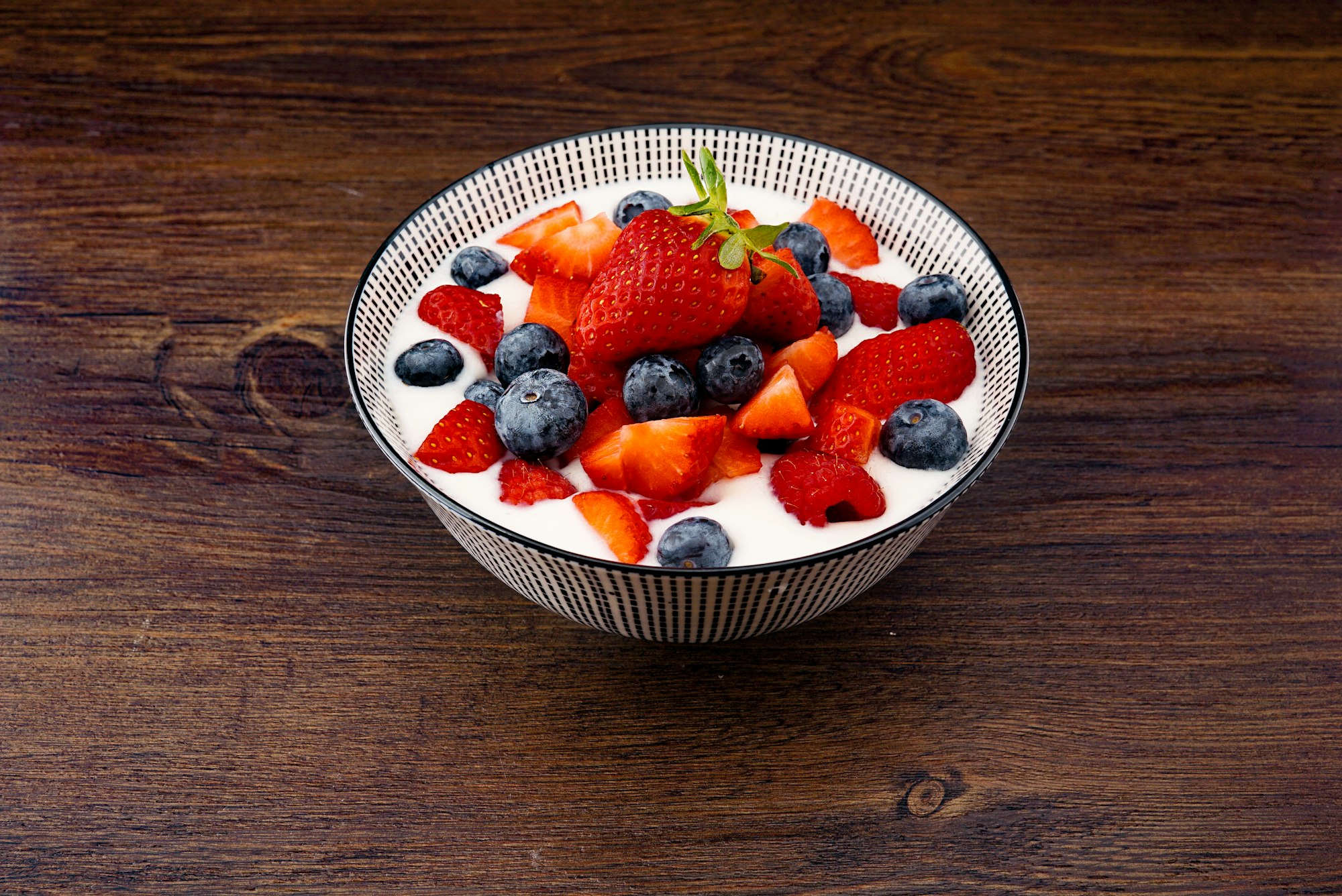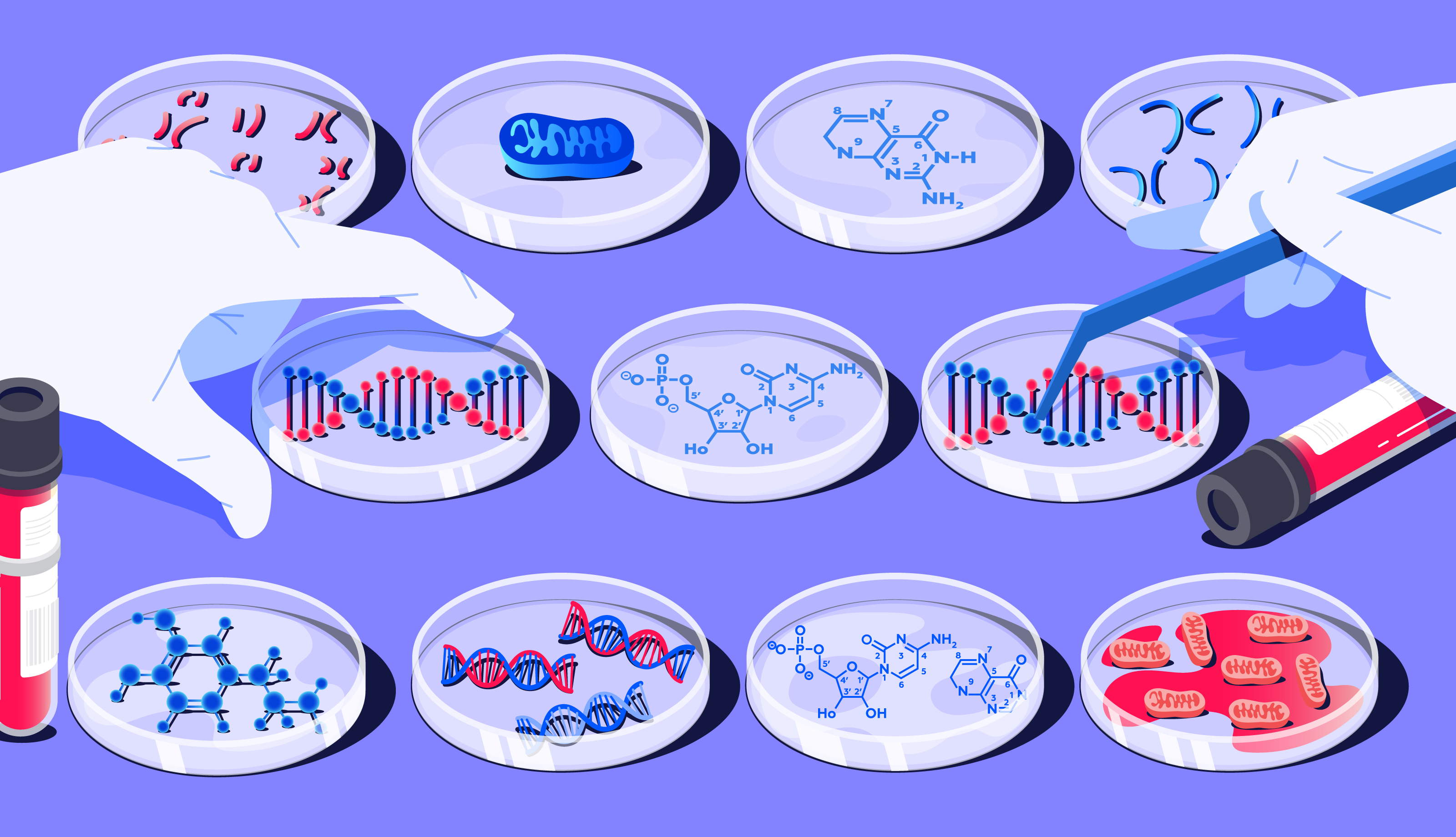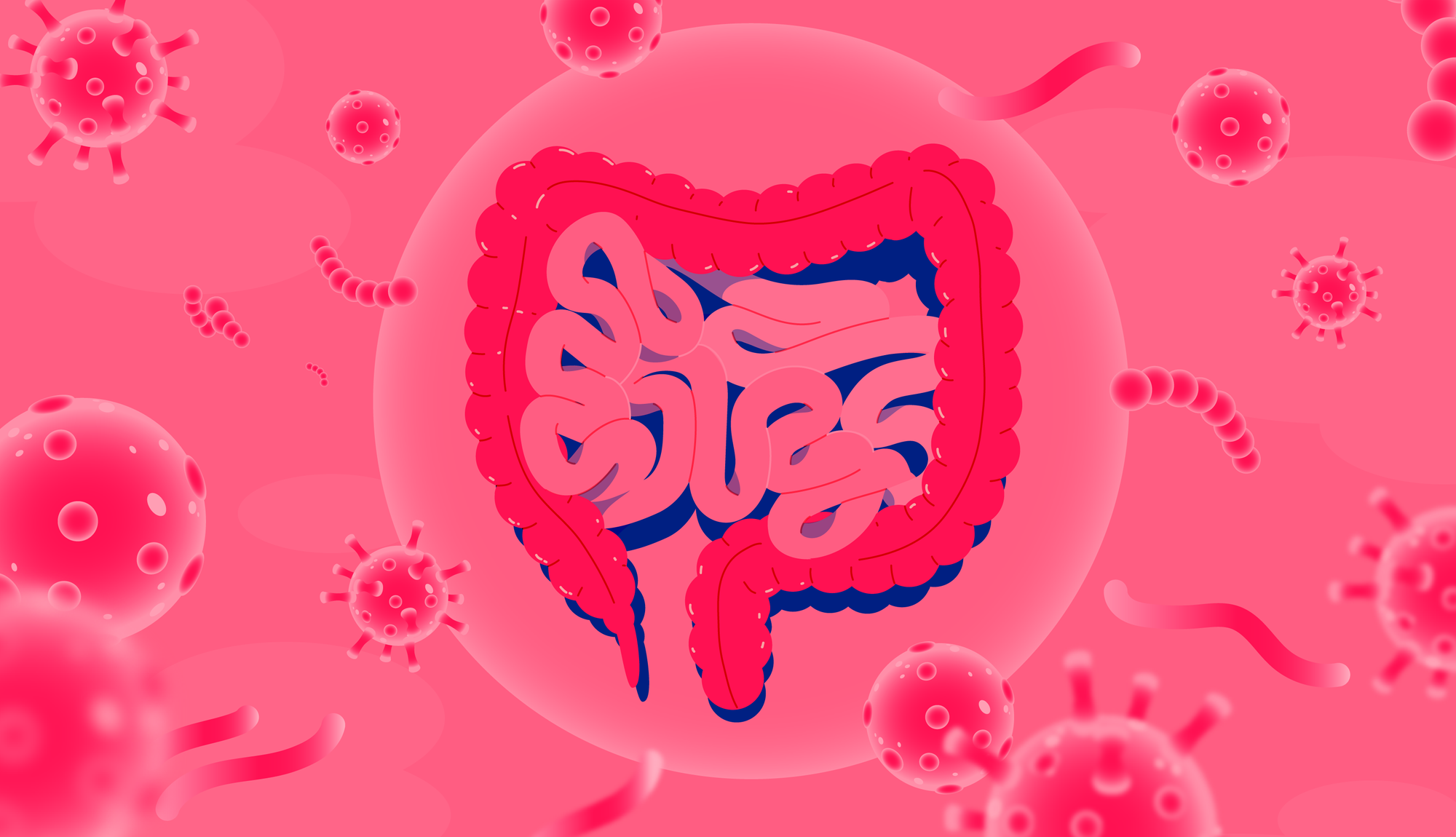If you’re ingesting microorganisms to boost your intestinal microbiota, then you’re in for a treat. Here’s the ultimate guide to Lactobacillus probiotic strains you find in probiotic yoghurt and other liquid probiotics.
Probiotics are all the rage, but let’s face it – most people are flying blind when it comes to the actual functions and benefits of probiotics. That’s where we’ve got you covered. As a microbiome testing company, we know a lot about probiotics because they live in your gut too.
We’ve rounded up the data on the most common species and strains of Lactobacillus in your probiotics so you can navigate the supermarket aisles (or Amazon probiotics page) like a boss. On the way, you’ll also discover the superpowers of lactic acid bacteria when it comes to defending you against invaders.
Table of contents
- L. acidophilus
- L. casei
- L. casei shirota
- L. fermentum
- L. gasseri
- L. helveticus
- L. johnsonii
- L. paracasei
- L. plantarum
- L. reuteri
- L. rhamnosus
- L. rhamnosus GG
In the hierarchy of bacteria, Lactobacillus belongs to the Lactobacillaceae family. Inside of the Lactobacillus genus, there are probiotic species and strains with proven health-promoting abilities. The illustration below will help you get to grips with bacterial hierarchy.
Some people have Lactobacillus bacteria in their gut already. In fact, Lactobacillus is a very important member of the microbial ecosystem in your colon because of its superpowers. In particular, it produces lactic acid (duh, right?) and acetate, a short-chain fatty acid.
The magic of Lactobacillus doesn’t end there! They produce antimicrobial substances to fend off invaders, and several species even make B vitamins – though most of these vitamins probably feed other gut bacteria. Recent research even indicates that they can help the body break down and digest milk, which is of particular interest to those suffering from lactose intolerance.
Currently, research indicates areas where probiotics can help human health, but why probiotics are effective is still under investigation. For the moment, it is widely accepted that probiotics support human health by acting through the ecosystem of bacteria in your gut.
☝️DISCLAIMER☝This article is for informational purposes only. It is not intended to constitute or be a substitute for professional medical advice, diagnosis, or treatment.
L. acidophilus
Lactobacillus acidophilus is a probiotic, and perhaps even the most famous thanks to humanity’s love affair with yoghurt. That’s right, L. acidophilus is used to make fermented dairy products like yoghurt, milk kefir, and other cultured dairy beverages.
There are about 20 strains of L. acidophilus, but it can be hard to know which one is in your probiotic because they are rarely specifically labelled on supplements and liquid probiotics.The health benefits that earned L. acidophilus the coveted title of probiotic include:
- immune system modulation
- lowering cholesterol
- improving lactose metabolism
- preventing and treating infection
- reducing bloating (NCFM strain)
- suppressing cold and flu symptoms in children (NCFM strain)
Some studies also suggest that daily probiotic yoghurt and probiotic pills containing L. acidophilus may help alleviate symptoms of stress, anxiety, and depression, and even influence how the brain responds to different tasks.
☝️TIP☝️Soil based probiotics are a trendy new type of probiotic supplement with very little research to back up their benefits.
L casei

Lactobacillus casei is a close relative of L. paracasei and L. rhamnosus - so much so that researchers regularly squabble over the correct classification of Lactobacillus species, and publish papers to prove their point. But we are not going to solve that entrenched debate, so let’s move on to the known and potential L casei benefits for health:
- preventing antibiotic-related diarrhea
- preventing inflammation in rheumatoid arthritis
- potential anticancer activities
- potential anti-obesity activity
It’s important to remember that probiotics do not constitute a treatment for any disease or condition. There’s still a lot to be discovered about Lactobacillus casei benefits and those of other probiotic lactic acid bacteria.
☝️TIP☝️Discover your gut's Lactobacillus and probiotic levels with the Atlas Microbiome Test.
L casei shirota
This probiotic species can relieve constipation. However, evidence on whether it can help relieve the symptoms of irritable bowel syndrome (IBS) is conflicting. One study suggests that L. casei might alleviate symptoms of small intestinal bacterial overgrowth (SIBO). A clinical trial also demonstrated that it can improve symptoms of norovirus (a gastrointestinal infection) in the elderly.
L. fermentum

Lactobacillus fermentum is a less-known, but no less prolific probiotic. One study found more than 90 different strains of L. fermentum in traditional Chinese and Mongolian dairy products alone! This species is also found in human breast milk.
In particular, ingesting L. fermentum might help ward off vaginal infections. One clinical trial demonstrated that daily oral probiotics containing L. fermentum (strain GR-1) and L. rhamnosus (strain RC-14) reduced the presence of potentially pathogenic bacteria and yeasts in the vagina.
L. gasseri
Lactobacillus gasseri is, in fact, not named because of its ability to induce flatulence. Rather it carries the name of the French microbiologist who discovered this species, Francois Gasser. It is a happy inhabitant of the vagina and the gut microbiome.
L. helveticus
Lactobacillus helveticus is a probiotic species that caters to your gut and commensal microorganisms by encouraging the production of butyrate, an essential short-chain fatty acid that maintains the integrity of your gut, fights pathogens, and even helps mice grow brain cells.
Other benefits of this probiotic include better sleep in elderly people, reduced anxiety and depression, anti-inflammatory properties, and more. It can even influence how your body handles calcium, a critical micronutrient that allows your cells to communicate with each other.
L. johnsonii

Lactobacillus johnsonii got its name from the man who discovered it, American microbiologist John L. Johnson (surprise, surprise). One strain (L. johnsonii 456) has enamoured researchers who celebrate its ability to reside in the gut for long periods after ingestion. That’s no mean feat, seeing as there’s a stomach acid bath to contend with, as well as the immune system.
This probiotic species of Lactobacillus hasn’t revealed many of its secrets yet, but it seems to be effective in managing inflammation and immune system responses. A 2017 study shows that it can regulate the immune system of mice infected with Campylobacter Jejuni, a common cause of food poisoning.
L. paracasei
| Illness | Effect | Diverticulitis | alleviates abdominal pain |
|---|---|
| alleviates symptoms | |
| Diarrhea | improves diarrhea symptoms |
| helps with non-rotavirus diarrhea | |
| Gastroenteritis | improves symptoms |
☝TIP☝️A lot of research has been conducted on the viability of probiotic species in non-dairy liquids, which has improved the choice and reliability of lactose free probiotics.
L. plantarum

Lactobacillus plantarum 299v is the best researched strain of L. plantarum. When put to the test, L. plantarum has performed well in a number of clinical trials on humans with a range of digestive conditions and absorption issues.
-
IBS: a number of studies have focused on its use in alleviating IBS with good results. According to one clinical trial, a 4-week treatment of one L. plantarum probiotic capsule per day helped IBS patients, especially for pain and bloating.
-
Ulcerative colitis: probiotic supplementation with L. Plantarum 299v has been shown to reduce symptoms of mild-to-moderate ulcerative colitis flares.
-
Iron deficiency: this strain was also shown to increase iron absorption from meals in female athletes with iron deficiency (a common problem for women who do sports).
-
Antibiotic-associated diarrhea: antibiotics are hard on the digestive system because they don’t just target “bad” bacteria. L. plantarum may help relieve diarrhea caused by antibiotics.
☝What is the best probiotic for IBS?☝️ In general, L. plantarum appears to contribute more to alleviating IBS than other probiotic strains, but more research is needed.
L. reuteri
Lactobacillus reuteri is renowned for its ability to deter the activity of pathogenic bacteria, yeasts, and other microorganisms. As a result, much of the research on reuteri probiotic strains focuses on its use in gastrointestinal and urogenital conditions. There are several L reuteri probiotic strains with specific applications.
- Vaginal health (strain RC-14)
- Urinary tract infections (RC-14)
- Constipation and diarrhea (strain Protectis)
- Oral health (strain Protectis)
- Inflammation and immune health (strain RC-14 Protectis)
☝TIP☝ Lactobacillus reuteri UK vendors include Amazon and large health stores, such as Boots and Holland and Barrett.
L. rhamnosus

The Lactobacillus rhamnosus probiotic species was initially thought to be a subspecies of L. casei, but now it’s been upgraded to species too. It’s found in supplements as well as fermented dairy products.
L. rhamnosus GG
Lactobacillus rhamnosus gg – sometimes shortened to Lactobacillus gg – has been tested in hundreds of clinical trials on humans since its discovery. So far, it’s been shown to have a positive effect on diarrhea, immune health and allergies, IBS, and ulcerative colitis.
☝What is CFU?☝ Colony-forming unit (CFU) measures the number of viable bacterial cells in your probiotic. But more is not always better, as you will see in this article about CFU.
- Intake of Lactobacillus plantarum Reduces Certain Gastrointestinal Symptoms During Treatment With Antibiotics
- Profermin is Efficacious in Patients with Active Ulcerative Colitis—A Randomized Controlled Trial
- Clinical trial: Lactobacillus plantarum 299v (DSM 9843) improves symptoms of irritable bowel syndrome
- Lactobacillus johnsonii ameliorates intestinal, extra-intestinal and systemic pro-inflammatory immune responses following murine Campylobacter jejuni infection
- A novel probiotic, Lactobacillus johnsonii 456, resists acid and can persist in the human gut beyond the initial ingestion period
- Health-Promoting Properties of Lactobacillus helveticus
- Vaginal colonisation by probiotic lactobacilli and clinical outcome in women conventionally treated for bacterial vaginosis and yeast infection
- Effect of Lactobacillus gasseri BNR17 on Overweight and Obese Adults: A Randomized, Double-Blind Clinical Trial
- Oral use of Lactobacillus rhamnosus GR‐1 and L. fermentum RC‐14 significantly alters vaginal flora: randomized, placebo‐controlled trial in 64 healthy women
- Safety assessment of Lactobacillus fermentum CECT5716, a probiotic strain isolated from human milk
- Probiotic effects on intestinal fermentation patterns in patients with irritable bowel syndrome
- Efficacy of Lactobacillus casei Shirota for patients with irritable bowel syndrome
- Lactobacillus casei Strain Shirota Alleviates Constipation in Adults by Increasing the Pipecolinic Acid Level in the Gut
- Effects of Lactobacillus casei supplementation on disease activity and inflammatory cytokines in rheumatoid arthritis patients: a randomized double‐blind clinical trial
- Use of probiotic Lactobacillus preparation to prevent diarrhoea associated with antibiotics: randomised double blind placebo controlled trial
- Consumption of fermented milk product with probiotic modulates brain activity
- The life history of Lactobacillus acidophilus as a probiotic: a tale of revisionary taxonomy, misidentification and commercial success
- Probiotic bacteria Lactobacillus acidophilus NCFM and Bifidobacterium lactis Bi-07 versus placebo for the symptoms of bloating in patients with functional bowel disorders: a double-blind study




















